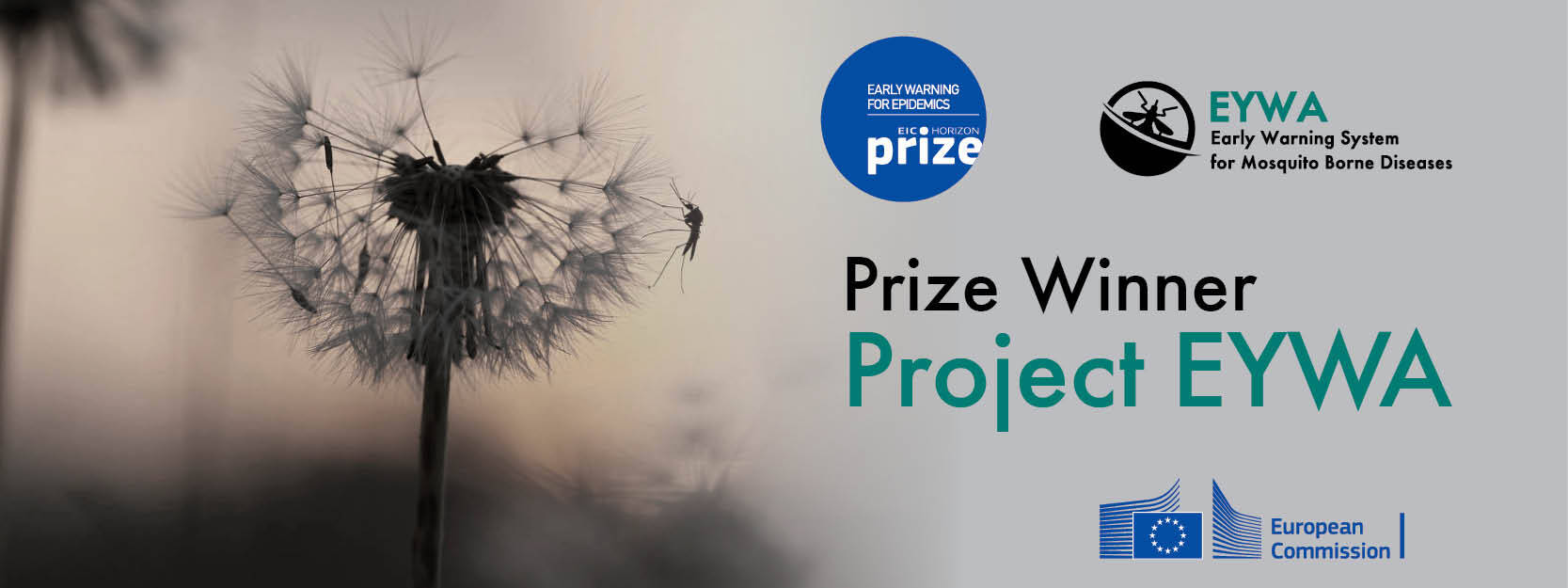EYWA - EarlY WArning System for Mosquito borne disease
The main objectives of EYWA lie with the need to offer a scalable, reliable, sustainable and cost-effective Early Warning System (EWS) relying on big Earth Observation (EO) data in conjunction with environmental, climatic and meteorological essential parameters, socioeconomic and population data, ecosystem and morphological related parameters, as well as epidemiological and entomological data to forecast and monitor MBDs.
Start Date
01/06/2022End Date
31/12/2025Funded by
H2020 EIC PRIZEGrant agreement ID
CUP D43C22000950002Total cost
- budget FEM
- 100.000 Euro
Coordinated by
National Observatory of Athens / BEYOND Center of Earth Observation Research and Satellite Remote Sensing
Project description
The main objectives of EYWA lie with the need to offer a scalable, reliable, sustainable and cost-effective Early Warning System (EWS) relying on big Earth Observation (EO) data in conjunction with environmental, climatic and meteorological essential parameters, socioeconomic and population data, ecosystem and morphological related parameters, as well as epidemiological and entomological data to forecast and monitor MBDs.
Extended description
The EYWA project aims to develop and implement an integrated early warning system for mosquito-borne disease (MBD) epidemics. This system leverages a multidisciplinary approach, combining entomological, epidemiological, and remote sensing data to generate predictive models for MBD risk assessment and forecasting.
Key Scientific Objectives:
- Vector Ecology and Population Dynamics:
- To characterize the ecological niches of key mosquito vectors, including their distribution, abundance, and phenology.
- To develop predictive models of mosquito population dynamics based on environmental variables (temperature, rainfall, humidity), land cover, and anthropogenic factors.
- Disease Epidemiology and Transmission:
- To analyze epidemiological data on MBD incidence and prevalence, identifying spatial and temporal patterns of disease outbreaks.
- To develop mathematical models of MBD transmission, incorporating vector ecology, human population dynamics, and climate variability.
- Remote Sensing and Environmental Monitoring:
- To utilize satellite remote sensing data to monitor environmental factors that influence mosquito vector ecology and MBD transmission.
- To develop algorithms for the retrieval of relevant environmental variables, such as temperature, rainfall, vegetation indices, and surface water extent.
- Integrated Modeling and Risk Assessment:
- To integrate entomological, epidemiological, and remote sensing data into a comprehensive modeling framework for MBD risk assessment.
- To develop early warning indicators and forecasting tools for MBD epidemics, providing timely information for public health interventions.
- Data Integration and Platform Development:
- To develop a geospatial platform for the integration, visualization, and analysis of multi-source data.
- To create user-friendly interfaces for public health authorities and decision-makers.
Methodology:
The project employs a combination of:
- Field entomological surveys for mosquito vector monitoring.
- Epidemiological data analysis using statistical and spatial modeling techniques.
- Remote sensing data processing and analysis using advanced algorithms.
- Mathematical modeling of vector population dynamics and disease transmission.
- Geospatial analysis and data visualization using GIS tools.
Expected Outcomes:
EYWA will deliver:
- A robust early warning system for MBD epidemics.
- Predictive models for MBD risk assessment and forecasting.
- Geospatial data and tools for public health decision-making.
- Improved understanding of the ecological and epidemiological factors that drive MBD transmission.
This project will provide valuable tools for public health authorities to anticipate and mitigate the impact of MBD epidemics, ultimately contributing to improved disease control and prevention.
FEM Project contact person
Official project website
Funding Scheme
Loghi


